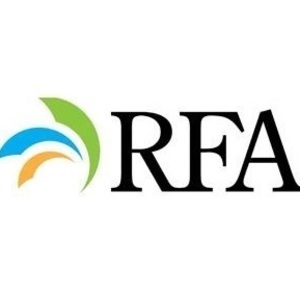RFA: Small refinery exemptions erode ethanol demand

March 14, 2019
BY Matt Thompson
Geoff Cooper, president and CEO of the Renewable Fuels Association, said in a media call March 14 that small refinery exemptions issued by former EPA Administrator Scott Pruitt eroded demand for ethanol in 2018, and called for those ethanol gallons to be reallocated to other obligated parties.
“Those exemptions resulted in … billions of RINs being dumped back onto the market, and a collapse in RIN prices,” Cooper said. “And so, we had a situation where any pressure to expand ethanol blending beyond the so-called E10 blend wall was wiped away and refiners could meet marginal RFS compliance obligations by purchasing and turning in a 10 or 15 cent RIN, rather than taking steps to blend E15 or E85 or other higher ethanol blends.”
Because of the collapse in the RIN (renewable identification number) market, and the price of ethanol dropping to compensate, Cooper said the industry lost a significant income. “We believe that through those lower ethanol prices and lost demand in the physical market, we conservatively think that the ethanol industry lost more than $1 billion last year,” he said. “Likely it was worse than that.”
Advertisement
Advertisement
RFA Chief Economist Scott Richman said during the call that while there was debate last year about what impact the exemptions had on the ethanol industry, data recently released by the Energy Information Administration show “there was demand destruction as a result of the small refinery exemptions.”
Richman said U.S. ethanol consumption fell from 14.49 billion gallons in 2017 to 14.38 billion gallons in 2018. It’s the first time the U.S. has seen a decline since 1998. “That’s a decline of 103 million gallons,” he said. “That’s the equivalent of what one large-scale or two mid-size ethanol facilities would produce over the course of an entire year.”
Richman also said the blend rate fell from 10.13 percent in 2017 to 10.07 percent in 2018. However, he noted the blend rate in January 2018 was 10.75 percent. “Unfortunately, around that same time, rumors and news stories around the small refinery exemptions began to filter into the market and they really had an impact on RINs, first of all, and second of all on ethanol blending,” Richman said. The blend rate between February and December 2018 was 10.01 percent, he noted.
Advertisement
Advertisement
Neil Koehler, CEO of Pacific Ethanol and RFA Chairman, also spoke during the call. He said Pacific Ethanol, like other producers, has been affected by the small refinery waivers. “These are real impacts, he said. “Geoff said a billion dollars of lost income. I think it is greater than that. We have had plants shut down, slow down. We had in 2018, some of the worst margins the industry has ever experienced, and there’s a lot of pain and suffering out there in our industry and it’s not right.”
Cooper said that while the waivers have presented a challenge for the industry, the next several months will be crucial. “I think it’s really hard to overstate, or exaggerate, just how important the next few months are going to be,” he said. “We’re moving into a pivotal period for the ethanol industry and we’re expecting EPA to make several decisions in the next few months that will really chart the course of the industry for the next three to five years.”
He said the trade deal with China to help restore the U.S. ethanol export market, the finalization of EPA’s year-round E15 and RIN reform rule, and reallocation of the 2.6 of ethanol that were exempted from the 2016 and 2017 blending are all of extreme importance to the industry. Also on March 14, EPA approved five more pending 2017 SREs.
“Again, just to kind of wrap up, we cannot underscore enough that our industry needs to see a much more judicious and restrained and responsible decision-making process on small refinery exemption petitions,” he said.
Related Stories
Broco Energy on July 17 announced a new partnership with the Massachusetts Port Authority (Massport) to deliver and transition Massport's fuel tanks to renewable diesel across its various facilities.
Shell Aviation, Accenture, and Amex GBT on July 10 announced Avelia is in the process of evolving to an industry solution with independent data hosting and a multi-supplier model helping users access the GHG benefits of SAF.
The U.S EPA on July 17 released data showing more than 1.9 billion RINs were generated under the RFS during June, down 11% when compared to the same month of last year. Total RIN generation for the first half of 2025 reached 11.17 billion.
The U.S. EPA on July 17 published updated small refinery exemption (SRE) data, reporting that six new SRE petitions have been filed under the RFS during the past month. A total of 195 SRE petitions are now pending.
European biodiesel producer Greenergy on July 10 confirmed plans to shut down its biodiesel plant in Immingham, Lincolnshire, U.K. The company temporarily suspended operations at the facility earlier this year.
Upcoming Events










